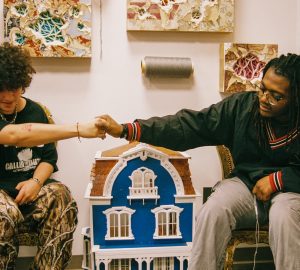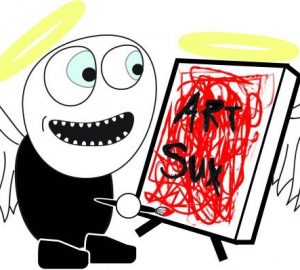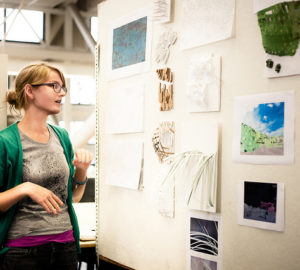Recently, I attended Critical Mass: Surviving the Art Critique which was a workshop put on by Bradford Coleman of our on-campus student counseling center. I was prepared to hear tips on how not to be hyper-sensitive or contentious in response to hearing positive or negative criticism about my art. I was not, however, prepared to hear about our overall soft-handed approach to the critique process. Apparently SCAD Atlanta students have a tendency to play Mr. and Ms. Nice Artist during critiques. We are quiet when we should speak up. We fear that we will offend or hurt feelings if we are honest. When we dare to comment, our observations are cloudy at best and provide no direction for how the artist can or should grow.
no images were found
This is pretty sorry. We’re at a school overflowing with talent. Talent which has no shortage of opinion or perspective when it comes to creative pursuits. We pay to have the luxury of rubbing elbows with our fellow students. We also pay for the luxury of knowing where we stand artistically before we enter the market. When we’re not open to observations from our peers, we’re overlooking a crucial opportunity to improve. We’re also missing out on creating an environment for growth when we give lukewarm or useless commentary. Luckily, Bradford shared some tips for faring both sides of the art critique.Recognize and value your voice. Yes, we do have something relevant to say. Yes, we all have a right to be heard.
Do not operate out of fear. Our classrooms are safe places. This is where we can develop without worry of losing income, clout or reputation. Everyone here wants us to succeed.
Aim to be constructive. Saying nothing doesn’t help anyone. Saying that something is “nice” doesn’t help either. We should provide thorough commentary on what is working and what needs work.
Comment on the work and not the artist. Critiques are not forums to rip people apart. The focus is the art.
Value objectivity over subjectivity. We should be objective by basing our critiques on the art form and approach to the art form. Critiques are about personal growth, not personal taste.
I get it. We are artists and we are sensitive about our art. Since we are all familiar with this sensitivity, we should all help each other be as good as we possibly can with what we do here and now. Once we get out in the world, we will be hard-pressed to find the same sort of support found here at SCAD Atlanta. That support comes in the form of our teachers, assignments, each other and our critiques. Let’s embrace all of it.


























